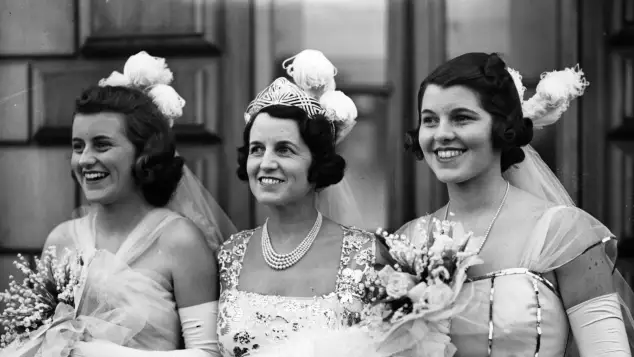Rosemary Kennedy was the third child and eldest daughter of Joseph P. Kennedy Sr. and Rose Kennedy. The high-profile Kennedy family consisted of nine children, including U.S. President John F. Kennedy and politicians Robert F. Kennedy and Ted Kennedy.
Born on Sept. 13, 1918, Rosemary struggled with developmental difficulties in her childhood. These reportedly stemmed from a loss of oxygen after a doctor was unable to attend immediately to Rosemary's mother during her birth.
Throughout her upbringing, she struggled with reading and writing as well as mood swings and seizures. But apart from these issues, Rosemary was known as a happy and social girl in her youth.
RELATED: Natasha Richardson's Tragic Death
How Rosemary Kennedy's behaviour was addressed
Still, Rosemary didn't quite fit in with the Kennedy family image. Her siblings were reportedly protective of her, but she grew more difficult to control as she approached adulthood.
In her teens she received experimental injections. She changed schools and displayed erratic and flirtatious behaviour.
When Rosemary was 23-years-old, her father, Joseph, decided that his daughter should undergo a prefrontal lobotomy to address her behaviour and struggles.
Sadly for Rosemary, the controversial (and now condemned) surgery had grown more common in the 1940s as a treatment for mental disorders. She was lobotomized, without her mother's knowledge, in November 1941.
RELATED: Patrick Swayze's Tragic Family History
Rosemary Kennedy's tragic lobotomy
The horrific lobotomy procedure was a tragedy, as it forever left Rosemary incapacitated, unable to speak, and with only limited use of her body.
"Even after months of physical therapy, Rosemary never regained the full use of one arm and walked with a limp. Initially, she could speak only a few words," Meryl Gordon wrote in 2015.
Rosemary was sent away to institutions first in New York City and then in Jefferson, Wisconsin, where she lived from 1949 until her death in 2005.
Her sudden disappearance from public life, after a notable visit with the Kennedys to Buckingham Palace in 1938, was said to be due to reclusive tendencies. She was also kept away from her family for over 20 years.
Her mother, Rose, finally visited in the 1960s; her father Joseph never visited after the lobotomy. It wasn't until Joseph Kennedy Sr. suffered a stroke in 1961 that Rosemary's siblings were made aware of her location.
In the 1960s, her institutionalization was said to be due to "mental retardation." The truth about the lobotomy came out only in the late 1980s. Rosemary's siblings later visited her more often and were with her when she died of natural causes at the age of 86 in 2005.
Some Kennedy siblings were inspired by their sister's tragedy, as well. Eunice Kennedy Shriver became known for her work with disabilities and the Special Olympics. Ted Kennedy, likewise, supported disability causes while in the U.S. Senate.









